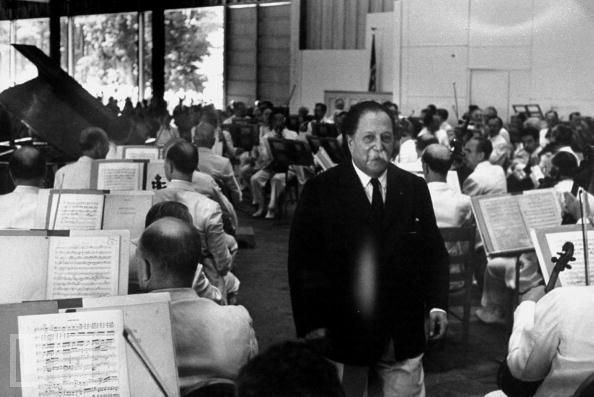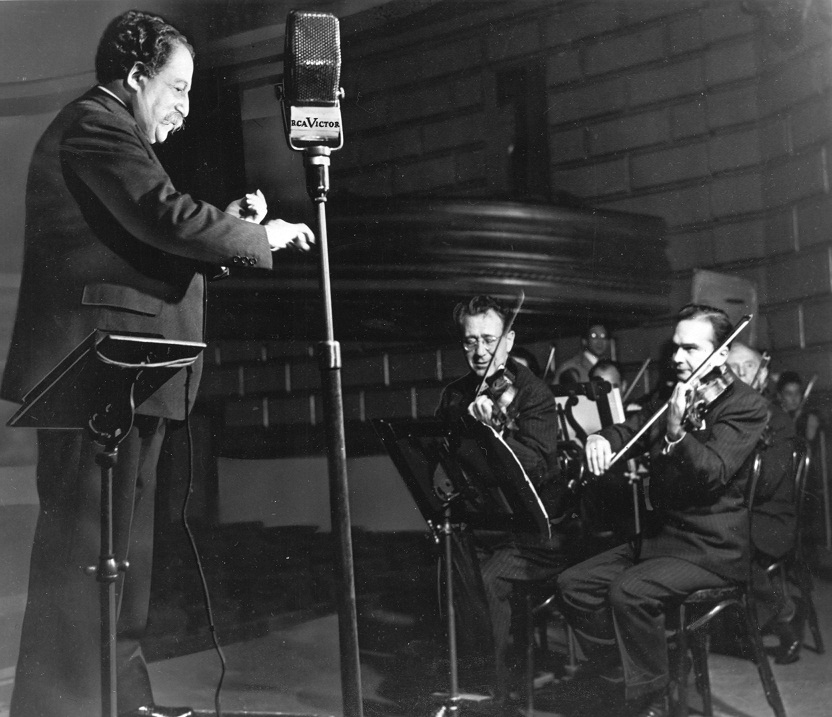<Back to Index>
- Conductor Zubin Mehta, 1936
- Conductor Pierre Monteux, 1875
PAGE SPONSOR
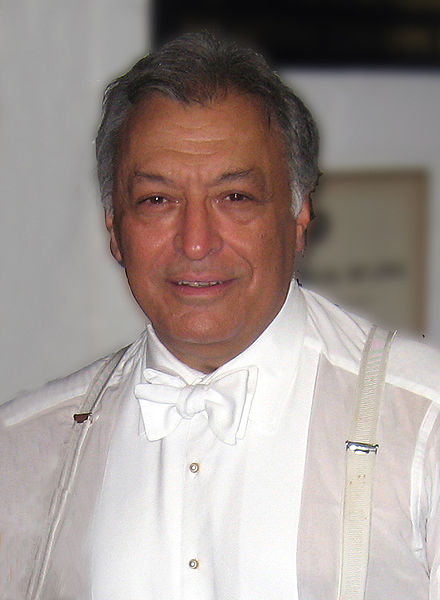
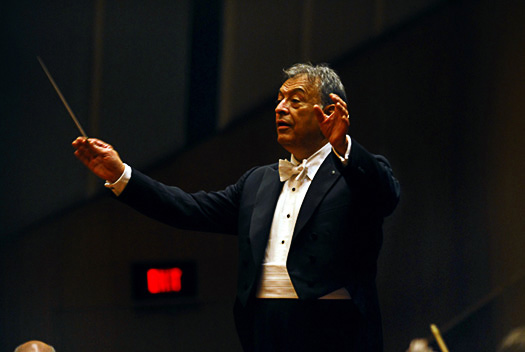
Zubin Mehta (ज़ुबिन मेहता) (born 29 April 1936) is an Indian conductor of western classical music. He is the Music Director for Life of the Israel Philharmonic Orchestra.
Zubin Mehta was born into a Parsi family in Bombay, British India, the son of Mehli and Tehmina Mehta. His father Mehli Mehta was a violinist and founding conductor of the Bombay Symphony Orchestra. Mehta is an alumnus of St. Mary's School, Mumbai, and St. Xavier's College, Mumbai. Mehta initially intended to study medicine, but eventually became a music student in Vienna at the age of 18, under Hans Swarowsky. Also at the same academy along with Mehta were conductor Claudio Abbado and conductor – pianist Daniel Barenboim.
Mehta's first marriage was to Canadian soprano Carmen Lasky in 1958.
They have a son, Mervon and a daughter, Zarina. In 1964, they divorced. Two years after the divorce, Carmen married Zubin's brother, Zarin Mehta, now the Executive Director of the New York Philharmonic. In July 1969, Mehta married Nancy Kovack, a former American film and television actress. Mehta is a permanent resident of the United States, but retains his Indian citizenship.
In 1958, Mehta made his conducting debut in Vienna. The same year he won the International Conducting Competition in Liverpool and was appointed assistant conductor of the Royal Liverpool Philharmonic. Mehta soon rose to the rank of chief conductor when he was made Music Director of the Montreal Symphony Orchestra in 1960, a post he held until 1967. In 1961, he was named assistant conductor of the Los Angeles Philharmonic; however, the orchestra's music director designate, Georg Solti, was not consulted on the appointment, and Solti subsequently resigned in protest; soon after, Mehta himself was named Music Director of the orchestra, and held the post from 1962 to 1978.
In 1978 Mehta became the Music Director and Principal Conductor of the New York Philharmonic and remained there until his resignation in 1991, becoming the longest holder of the post.
The Israel Philharmonic Orchestra (IPO) appointed Mehta its Music Advisor in 1969, Music Director in 1977, and made him its Music Director for Life in 1981.
Since 1985, Mehta has been chief conductor of the Teatro del Maggio Musicale Fiorentino in Florence. Additionally, from 1998 until 2006, Mehta was Music Director of the Bavarian State Opera in Munich. The Munich Philharmonic named him its Honorary Conductor. Since 2005, Mehta has been the main conductor (together with Lorin Maazel) of the new opera house of the Ciutat de les Arts i les Ciències in Valencia, Spain.
Mehta conducted the Vienna New Year's Concert in the years 1990, 1995, 1998 and 2007. He has also made a recording of Indian instrumentalist Ravi Shankar's Sitar Concerto No. 2, with Shankar and the London Philharmonic Orchestra.
In 1990, he conducted the Orchestra del Maggio Musicale Fiorentino and the Orchestra del Teatro dell'Opera di Roma in the first ever Three Tenors concert in Rome, joining the tenors again in 1994 at the Dodger Stadium, Los Angeles. In between those appearances he conducted the historic 1992 production of Tosca in which each act took place in the actual setting and at the actual time specified in the score. This production starred Catherine Malfitano in the title role, Plácido Domingo as Cavaradossi and Ruggero Raimondi as Baron Scarpia. Act I was telecast live from Rome's basilica of Sant'Andrea della Valle on Saturday, 11 July, at noon (Central European Daylight Savings Time); act II was telecast later that evening from the Palazzo Farnese at 9:40 p.m.; act III was telecast live on Sunday, 12 July, at 7:00 am from the Castel Sant'Angelo, also known as Hadrian's Tomb.
In June 1994, Mehta performed the Mozart Requiem, along with the members of the Sarajevo Symphony Orchestra and Chorus at the ruins of Sarajevo's National Library, in a fund raising concert for the victims of armed conflict and remembrance of the thousands of people killed in the Yugoslav wars. On 29 August 1999, he conducted Mahler Symphony No. 2 (Resurrection), at the vicinity of Buchenwald concentration camp in the German city of Weimar, with both the Bavarian State Orchestra and the Israel Philharmonic Orchestra, sitting alongside each other. He toured his native country India and home city Mumbai (Bombay) in 1984, with the New York Philharmonic, and again in November – December 1994, with the Israel Philharmonic Orchestra, along with soloists Itzhak Perlman and Gil Shaham. In 1997 and 1998, Mehta worked in collaboration with Chinese film director Zhang Yimou on a production of the opera Turandot by Giacomo Puccini which they took to Florence, Italy, and then to Beijing, China, where it was staged, in its actual surroundings in the Forbidden City, with over 300 extras and 300 soldiers, for nine historic performances. The making of this production was chronicled in a documentary called The Turandot Project which Mehta narrated.
On 29 November 2005 Mehta appeared with the Royal Concertgebouw Orchestra performing Bruckner's 8 symphony. On 26 December 2005, the first anniversary of the Indian Ocean Tsunami, Mehta and the Bavarian State Orchestra performed for the first time in Chennai (formerly called Madras) at the Madras Music Academy. This tsunami memorial concert was organised by the Madras German consulate along with the Max - Mueller Bhavan / Goethe - Institut. 2006 was his last year with the Bavarian State Orchestra.
Mehta received praise early in his career for dynamic interpretations of the large scale symphonic music of Anton Bruckner, Richard Strauss, Gustav Mahler and Franz Schmidt. His conducting is renowned as being flamboyant, vigorous and forceful.
Mehta's name is mentioned in the song "Billy the Mountain" on the 1972 album Just Another Band from L.A. by Frank Zappa and The Mothers of Invention.
At the Israel Prize ceremony in 1991, Mehta was awarded a special prize in recognition of his unique devotion to Israel and to the Israel Philharmonic Orchestra. In 1995, Laureate of the Wolf Prize in Arts. In 1999, Mehta was presented the "Lifetime Achievement Peace and Tolerance Award" of the United Nations. The Government of India honored Mehta in 1966 with the Padma Bhushan and in 2001 with India's second highest civilian award, the Padma Vibhushan. In 2005, he was voted the 117th greatest Israeli of all time, in a poll by the Israeli news website Ynet to determine whom the general public considered the 200 Greatest Israelis. In September 2006 the Kennedy Center announced Mehta as one of the recipients of that year's Kennedy Center Honors, presented on 2 December 2006. On 3 February 2007, Mehta was the recipient of the Second Annual Bridgebuilder Award at Loyola Marymount University. In 2007 he received the prestigious Dan David Prize. Conductor Karl Böhm awarded Mehta the Nikisch Ring – the Vienna Philharmonic Ring of Honor.
Mehta is an honorary citizen of Florence and Tel Aviv. He was made an honorary member of the Vienna State Opera in 1997. In 2001 he was bestowed the title of "Honorary Conductor" of the Vienna Philharmonic and in 2004 the Munich Philharmonic awarded him the same title, as did the Los Angeles Philharmonic and the Teatro del Maggio Musicale Fiorentino in 2006. At the end of his tenure with the Bavarian State Opera he was named Honorary Conductor of the Bavarian State Orchestra and Honorary Member of the Bavarian State Opera, and the Gesellschaft der Musikfreunde, Wien, appointed him honorary member in November 2007.
In October 2008, Mehta received the Praemium Imperiale (World Culture
Prize in Memory of His Imperial Highness Prince Takamatsu), Japan. On 1
March 2011, Mehta received the 2,434th star on the Hollywood Walk of
Fame. On 2 October 2011 he received the Echo Klassik in Berlin, for his life's work.
Mehta's life has been documented in Terry Sanders' film Portrait of Zubin Mehta. A documentary film about Mehta, Zubin and I, was produced by the grandson of an Israeli harpist who played with the Israel Philharmonic Orchestra before Mehta assumed the helm. The filmmaker joins the orchestra on a tour of Mumbai and meets with him for two interviews, in India and Tel Aviv.
In Christopher Nupen's 1969 documentary The Trout about a performance of Schubert's Trout Quintet in London by Jacqueline du Pré, Daniel Barenboim, Pinchas Zukerman and Itzhak Perlman, Mehta plays the double bass.
In 2009, Mehta established Mifneh (Hebrew for "change"), a music education program for Israeli Arabs, in cooperation with Bank Leumi and the Arab - Israel Bank. Three schools, in Shfaram, the Jezreel Valley and Nazareth, are taking part in the pilot project.
He and his brother Zarin constitute the Advisor Council of the Mehli Mehta Foundation.
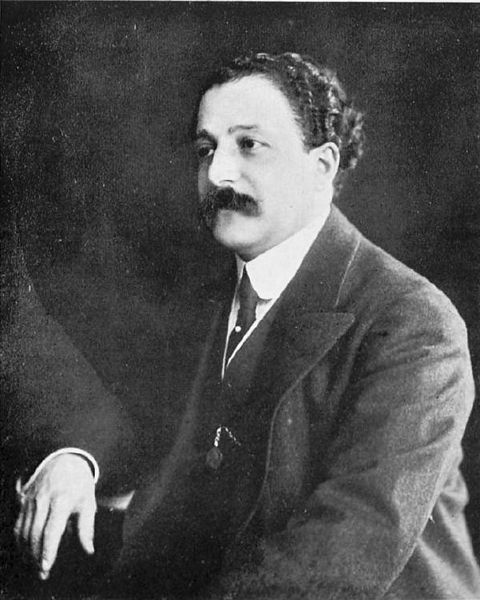
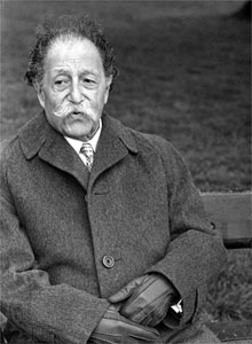
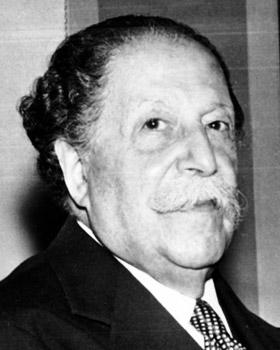
Pierre Monteux (April 4, 1875 – July 1, 1964) was an orchestra conductor. Born in Paris, France, Monteux later became an American citizen.
Monteux was born in Paris in 1875. His family was descended from Sephardi Jews who came to France in the wake of the Spanish Inquisition. He studied violin from an early age, entering the Paris Conservatoire at the age of nine. He became a proficient violinist, good enough to share the Conservatoire's violin prize in 1896 with Jacques Thibaud. In his spare time he also played at the Folies Bergères. He later took up the viola studying with Théophile Laforge and played in the Geloso Quartet which played one of Brahms's string quartets in a private performance for the composer and in the orchestra of the Opéra - Comique, leading the viola section in the première of Debussy's opera, Pelléas et Mélisande in 1902.
In 1910, Monteux took a conducting post at the Dieppe casino. The next year, 1911, he became conductor of Sergei Diaghilev's ballet company, the Ballets Russes. In this capacity he conducted the premières of Stravinsky's Petrushka (1911) and The Rite of Spring (1913) – with its famous riot – as well as Debussy's Jeux (1913) and Ravel's Daphnis et Chloé (1912). This established the course of his career, and for the rest of his life he was noted particularly for his interpretations of Russian and French music.
With the outbreak of World War I, Monteux was called up for military service, but was discharged in 1916, and traveled to the United States. There he took charge of the French repertoire at the Metropolitan Opera in New York City from 1917 to 1919. He also conducted the United States premières of Rimsky - Korsakov's opera The Golden Cockerel and Henri Rabaud's Mârouf, savetier du Caire at the Metropolitan Opera.
He then moved to the Boston Symphony Orchestra (1919 - 1924). He had a major effect on the Boston ensemble's sound, and was able to fashion the orchestra as he pleased after a strike led to thirty of its members leaving. He also introduced a number of new works in Boston, notably works by French composers. Monteux in 1924 conducted the orchestra in the New York première of The Rite of Spring, a performance which included a "galvanized" 15 year old Elliott Carter in the audience, according to a 2008 report. (Carter was again in attendance, on the occasion of his 100th birthday in Carnegie Hall in 2008 when the orchestra, now under the baton of James Levine, again performed the Stravinsky piece.)
In 1924, Monteux also began an association with the Concertgebouw Orchestra of Amsterdam, serving as "first conductor" ("eerste dirigent") alongside Willem Mengelberg. In 1929, he was entrusted the direction of the Orchestre Symphonique de Paris, which he conducted until 1935.
Monteux then returned to the United States, and worked with the San Francisco Symphony Orchestra from 1935 to 1952. He began recording with the orchestra for RCA Victor in 1941 and made numerous discs in San Francisco's War Memorial Opera House for the next 11 years. In 1943, he founded The Pierre Monteux School for Conductors and Orchestra Musicians, which is in Hancock, Maine, where Monteux was then living; Hancock was the childhood home of his third wife, Doris Hodgkins Monteux (she referred to herself as his Eroica). There he taught such future conductors as Anshel Brusilow, Lorin Maazel, Neville Marriner, André Previn, Werner Torkanowsky and David Zinman. In 1946, he became a United States citizen. He made a nostalgic return to San Francisco in 1960 to guest conduct the orchestra and to record Richard Wagner's Siegfried Idyll and Richard Strauss's Death and Transfiguration for RCA Victor, the only stereophonic recordings he made with his former orchestra. He returned to San Francisco a few more times, to conduct the orchestra, before his death.
In 1951, Monteux renewed his association with the Boston Symphony as a regular guest conductor. He conducted it in Boston, at Tanglewood, and on a transcontinental tour and on two tours to Europe. Monteux also recorded with the Boston Symphony for RCA Victor. He continued to conduct the Boston Symphony until his death in 1964.
From 1961 to 1964 he was principal conductor of the London Symphony Orchestra. He was 86 when he was invited to take the post, and he famously accepted on condition that he had a 25 year contract, with a 25 year option of renewal. With the LSO Monteux gave the 50th anniversary performance of The Rite of Spring, at the Royal Albert Hall, London, in the presence of the composer. In his last studio sessions, for Philips Records in 1964, Monteux recorded a disc with the LSO and his son, the flautist Claude Monteux, the only gramophone recording Pierre and Claude made together.
Pierre Monteux died in Hancock in 1964.
Monteux observed, 'Our principal work is to keep the orchestra together
and carry out the composer's instructions, not to be sartorial models,
cause dowagers to swoon, or distract audiences by our "interpretation"'. He advised the young Previn that when orchestras are playing well the conductor should not interfere with them. 'His approach to all music is that of the master - craftsman,' according to an approving critic in 1957. The record producer John Culshaw
described Monteux as 'that rarest of beings — a conductor who was loved
by his orchestras' and said that 'to call him a legend would be to
understate the case.' Toscanini observed that Monteux had the best baton technique he had ever seen.
Monteux made a large number of recordings throughout his career. He himself claimed to dislike them, maintaining that they lacked the spontaneity of live performances. However, some surviving live performances of Monteux conducting the San Francisco Symphony, taken from recordings of the NBC radio broadcast The Standard Hour, and videotaped telecasts with the Boston Symphony Orchestra from WGBH and the Chicago Symphony from the syndicated Music for Chicago programs demonstrate his abilities in actual concerts. His first, isolated recording was playing the viola in "Plus blanche que la blanche hermine" from Les Huguenots by Meyerbeer in 1903 for Pathé with the tenor Albert Vaguet.
Many of his recordings have remained in the catalogues for decades, notably his RCA recordings with the Boston Symphony Orchestra and Chicago Symphony Orchestras, Decca recordings with the Vienna Philharmonic Orchestra and his Philips recordings with the London Symphony Orchestra.